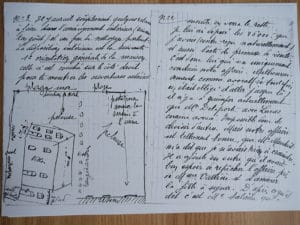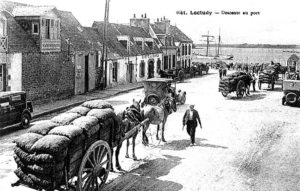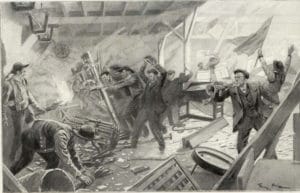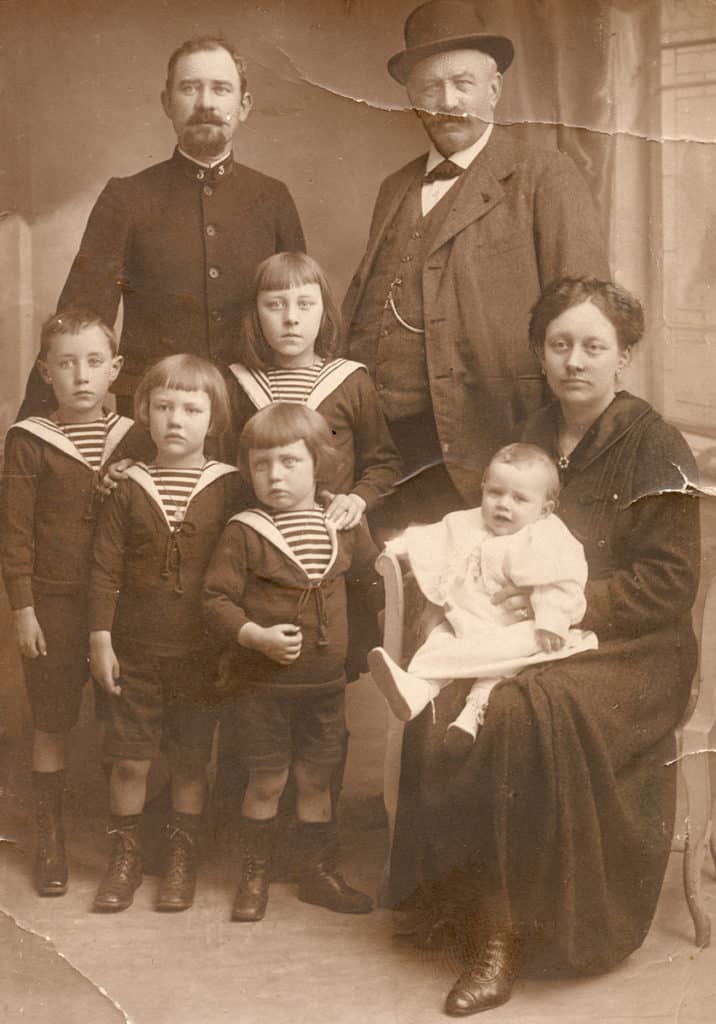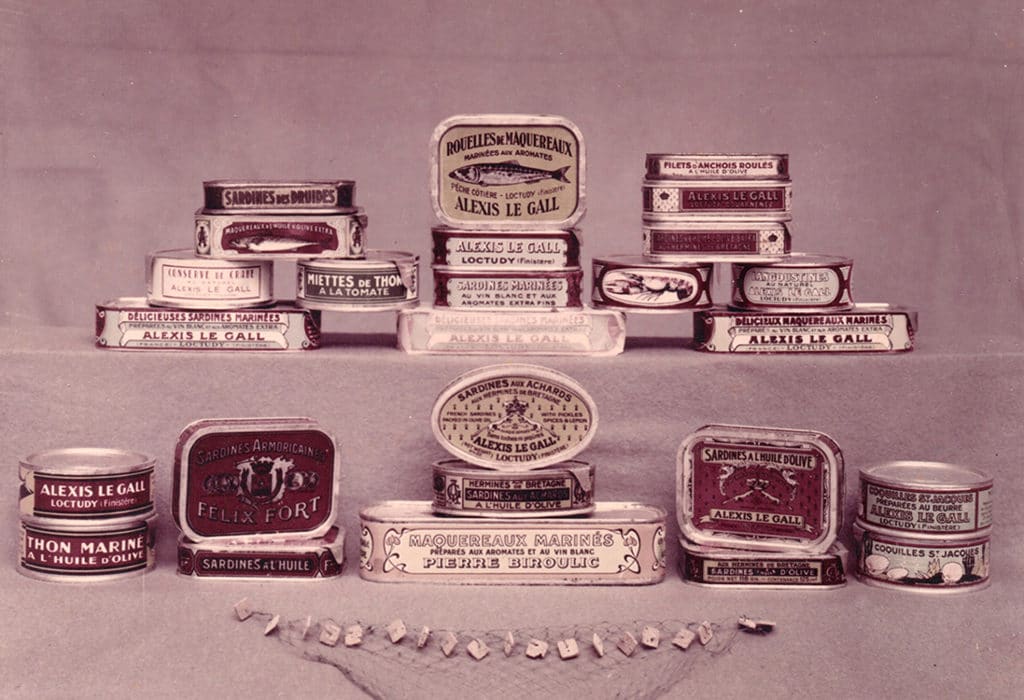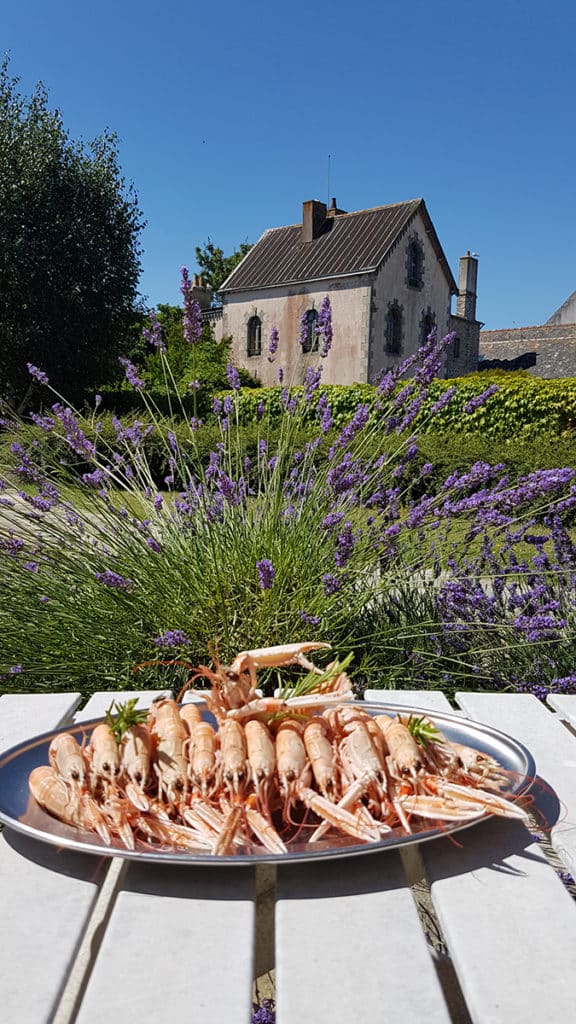The acquisition of the Vallière factory by the Le Gall Family
Jean-Marie Vallière des Filières, a potato merchant in Pont-l'Abbé, built a canning factory near the Loctudy slipway, on the site of his former potato warehouse. Loctudy was then a prosperous trading port: carts of potatoes jostled to supply the cargo ships.
In 1909, the cannery was struggling. A strike broke out for a few days: the workers were paid by the hour and not by the mile of sardines. The following year, the Vallière factory was almost seized. The Vallières narrowly escaped bankruptcy. In 1916, Jean-Marie Vallière des Filières died. His family put the cannery up for sale, but the war had already been raging for two years, and the factory did not attract many buyers. A buyer eventually came forward, Alexis Le Gall, but it was still wartime and the sale was delayed.
In 1917, Alexis Le Gall waited to be demobilised before concluding the deed of sale with the de Vallière des Filières family. He was a 37 year old father. He belonged to a large family of fishmongers and canners, originally from Douarnenez. Before the war, he was manager of the family factory. His wife, Alice Bouville, is from Paris. His father was also in the fish trade: he was an agent at Les Halles de Paris.
Modernisation of the factory
Alexis was finally demobilised in 1919. The sale is concluded! Alexis Le Gall and his family re-launched the cannery's activity without further delay. The name was changed to "La conserverie Le Gall". It produces the same brands as in Douarnenez: l'Hermine, les Druides and Félix Fort. The Le Gall family moved into the villa.
As soon as he arrived, Alexis Le Gall modernised the factory in every way: he built a building and bought neighbouring warehouses. He invested in engines and crimping machines. He also installed electricity and a telephone. The Le Gall cannery is a family business. Father Bouville helped his children a lot in their business. Alexis Le Gall joined forces with Alice's younger brother, Louis Bouville, a canner in Malakoff, near Paris. Madame Le Gall buys the fish from the fishermen of Loctudy or from the family's fishmongers in Guilvinec. Their daughter Henriette is now in charge of the cannery's accounts. She has just obtained her CAP. This was an important diploma at the time.
The end of an era
To cope with the difficulties of the canneries in the 1930s, the Le Galls invested in the sale of fresh fish and opened a fishmonger's in Quimper. They thought this would ensure the future of their son Alexis. In Loctudy, the cannery was closed for 2 years.
Between 1939 and 1945, the cannery ran at a low level, with very few female workers. Alexis Le Gall did not invest anymore. The factory remained in its pre-war state, already outdated. The gap between the Loctudy cannery and the other factories widened. In 1955, Alexis Le Gall was no longer young, he was 75 years old. The fishing season was bad: the Le Gall factory did not open this year. Without a buyer, the cannery ceased its activity for good.
However, the Le Gall family continued to work as fishmongers and occupied the house next to the factory with their daughter, Henriette. In 1961, Alexis and Alice Le Gall stopped their activity as fishmongers and retired.
Henriette Le Gall died in 1987. The house next to the factory is no longer occupied.

